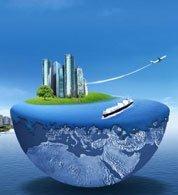About HCN
 A healthy city is a city which maintains and improves the social and natural environment and enables people to support each other through developing their potential to promote health and their social status. Most of the mega cities In the world including the Eastern Mediterranean Region, face challenges related to access to quality health services, safe water supply and sanitation, air pollution, road traffic accidents, insufficient access to green areas, sport facilities and high prevalence of non-communicable diseases. Healthy City Initiative has been established in all six WHO regions and was put into practice in the Eastern Mediterranean Region in 1990.
A healthy city is a city which maintains and improves the social and natural environment and enables people to support each other through developing their potential to promote health and their social status. Most of the mega cities In the world including the Eastern Mediterranean Region, face challenges related to access to quality health services, safe water supply and sanitation, air pollution, road traffic accidents, insufficient access to green areas, sport facilities and high prevalence of non-communicable diseases. Healthy City Initiative has been established in all six WHO regions and was put into practice in the Eastern Mediterranean Region in 1990.
The healthy city programme expresses a commitment on the part of an urban community to improve its members’ health through sustainable development. This requires including health equity for everyone in all health and development policies.
World Health Day 2010 provided the opportunity to push forward the urbanization and health agenda by securing the political commitment of more than 200 cities in the Region. It also encouraged community participation and inter-sectoral collaboration on their joint actions for health. The cities’ dedication to actively support the urbanization and health agenda must be sustained through joining the regional healthy city network. Entrance into this network is contingent upon meeting certain criteria that qualify a city as a “healthy city”.

The healthy city programme has emerged as an effective tool for improving health equity in urban areas, particularly in low-income and underprivileged neighborhoods. It is playing a role in the formation of political, professional and technical alliances to achieve health improvement goals and it helps create a supportive environment in which innovative action for local development can take place following a holistic and integrated approach. The healthy city approach involves comprehensive and systematic efforts to address health inequalities, focusing on urban poverty and the needs of vulnerable groups. It addresses the social, economic and environmental root causes of ill-health and places health at the centre of the economic regeneration and urban development agenda. Therefore, the programme is concerned with the physical, social, economic and spiritual determinants of health and the essential elements necessary to improve health and the environment. It addresses issues such as improving health services, the water supply, sanitation, pollution and housing. It also focuses on the promotion of healthy lifestyles and supports projects and activities which generate income, improve education, address women’s issues and children’s needs and enlist the support of volunteer groups. The approach works on the principle that health and quality of life can be improved by modification of living conditions in the home, school, workplace, city—the places or settings where people live and work.
To establish the healthy city programme in any given country or city it is important to tailor the programme to meet specific local needs.
The framework for implementation consists of three stages:
1. Getting started
2. Getting organized
3. Taking action
Major Challenges in the urban areas of the countries of EMR
1. Rural migration, rapid growth of urban slums and population growth in the mega cities;
2. Insufficient political commitment;
3. Not adopting the healthy city programme approach and coordination mechanism based on local needs;
4. Not fully utilizing local potential: nongovernmental organizations, donors, UN agencies, academic, research institutions and partners in city planning;
5. Not institutionalizing the healthy city programme concept and methodology as an integral part of development sectors;
6. Existence of industries in urban areas;
7. Insufficient infrastructure to accommodate rapid growth of urban areas: roads, primary health care, schools, housing, public transport, sanitation, etc.;
8. Lack of proper regulatory mechanisms for quality control: transport and roads, food safety, health and medicine, education, water and sanitation, etc